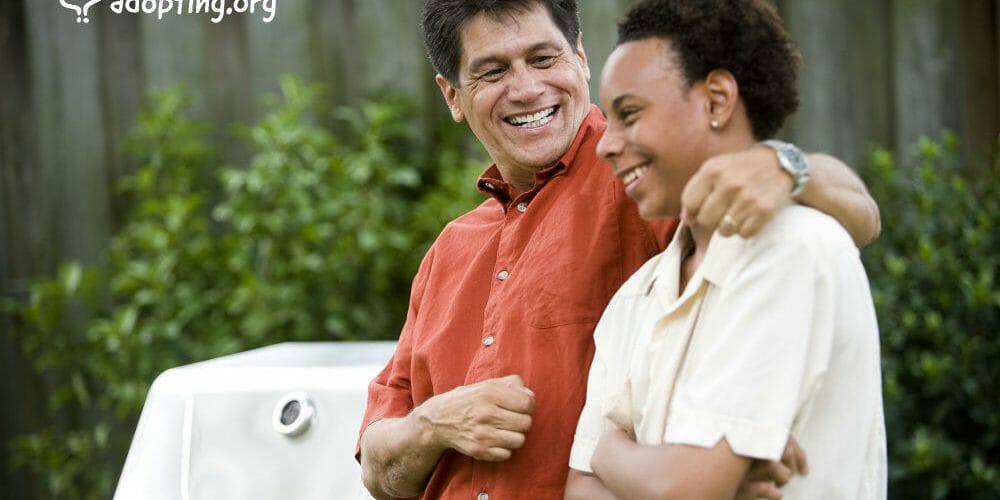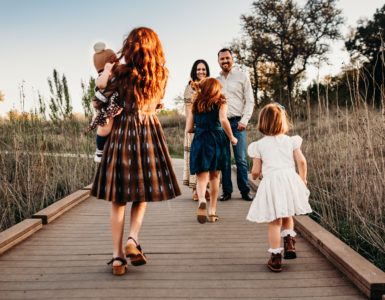The word “adoption” evokes images of cuddly babies in baskets being relinquished by heroic birth mothers and meeting their overjoyed adoptive parents for the first time.
It does not often make us think of 19-year-olds with car keys talking over the future with parent-figures. Adult adoption, however, has become more common in the United States. Who is adopting adults? Let’s take a look.
What Is Adult Adoption?
In the United States, the adoption process is the same whether you are adopting a child or an adult. The adoptee receives a new name, a new birth certificate, and existing relationships with biological parents are terminated. He now has a legal right to be identified with his new family.
An adoptee receives full inheritance rights, social security benefits, and access to the medical records of her new family. It also acts as a strong legal symbol of the emotional commitment that one adult has to another.
Who Pursues Adult Adoption?
An adult adoption usually follows a functional parental relationship that has developed over time. When deciding whether or not to allow one adult to adopt another, courts usually look for mutually beneficial reasons that are in the best interest of the adoptee.
The most common reason for an adult adoption is for inheritance purposes. One adult wants to leave property or financial assets to another in the future.
Adult adoption can also be used to formalize an existing parent-child relationship. For example, a former foster child who has aged out of the system may now finally be available to be adopted by the foster family that he has a close bond with. A stepchild may be adopted by a stepparent who is involved in her life so that she can change her last name.
In these cases, parents will continue to provide support in terms of guidance, physical needs, and financial help as adult children continue their education, become employed, or pursue healthy relationships and families of their own. They act as biological parents do when their children reach an age of maturity but are still dependent on more mature adults to provide love and stability.
Adult adoption is also employed when one adult plans to provide ongoing care for a younger adult who has a reduced capacity or disability. In these cases, the adoptive parent becomes the decision-maker for an adult who is mentally challenged or physically disabled. This type of adoption may require an attorney who can guide you through the laws and requirements.
Adult Adoption Guidelines
Adult adoption is managed on a state level. In some states, it is prohibited unless the adoptee is under 21. These include Alabama, Arizona, Nebraska, and Ohio. In 30 states, there is no age limit for adoptees.
Some states require that birth parents be notified before an adult adoption can be finalized. Others require an agreement between all parties involved. Many require consent from the spouses of adoptees or adoptive parents if they are married. Most states require a previous parent/child relationship between two parties before allowing an adult adoption. An adoption attorney can help you decide if an adult adoption is right for you. The American Academy of Adoption and Assisted Reproduction Attorneys is a great place to start looking for one in your state.
Adult Adoption Process
To begin the adoption process, you should pick up the required adoption papers at your local courthouse. These may be available at the courthouse window or the family law office.
Next, you will need to collect the information that the papers require. You may need to enlist the assistance of a lawyer. Extra papers may be required if the adult you are adopting is mentally challenged.
The documents then need to be signed in the presence of a notary. Many local banks have free notaries who can sign and emboss your paperwork. You can look online for one and find out what hours they are available at the bank.
You can then return to the courthouse to submit your paperwork. It will be signed and stamped, and you will be given a date and time for your court date.
Finally, you will need to appear before a judge in court. They will make sure that all legal needs have been met and that all of the needs and rights of the adoptee have been considered. If the judge approves, the paperwork will be signed and adoption papers will be issued.
International Adult Adoptions
Sometimes, adoption is used to ensure the citizenship of the adoptee within the United States. This is not generally recommended as a good way to ensure legal citizenship. Such cases come under close scrutiny by U.S. officials.
When filing for an international adult adoption, both immigration and U.S. adoption laws must be considered. Prospective adoptive parents should first read the Immigration and Nationality Act, which established a new immigration policy based on reuniting immigrant families.
Information on international adult adoptions can be found on the U.S. Department of Homeland Security website. An I-830 form, Petition for Alien Relative, will have to be filled out and filed.
Generally speaking, those adopting an international person need to be U.S. citizens, and the adoptee must be eligible for intercountry adoption.
Adult adoption is a wonderful way to create a stable home and family for an adult who does not have one. If your situation meets the appropriate requirements, it will give a powerful legal status to someone who is as much your relative as any biological relation.
Visit Adoption.com’s photolisting page for children who are ready and waiting to find their forever families. For adoptive parents, please visit our Parent Profiles page where you can create an incredible adoption profile and connect directly with potential birth parents.




